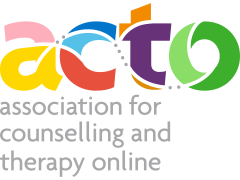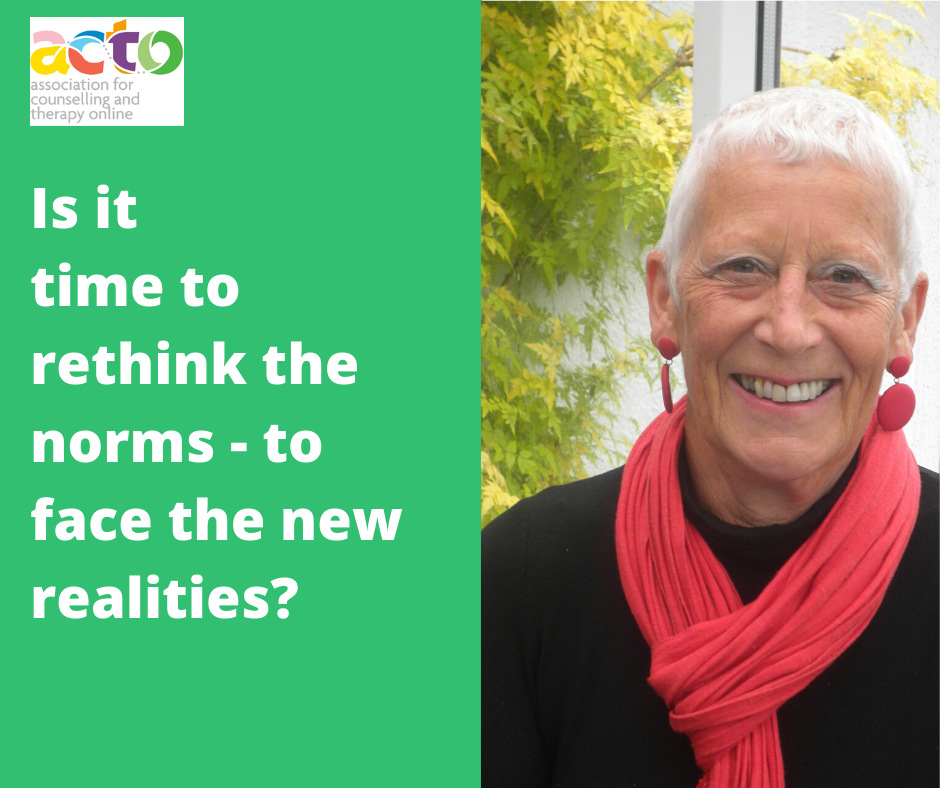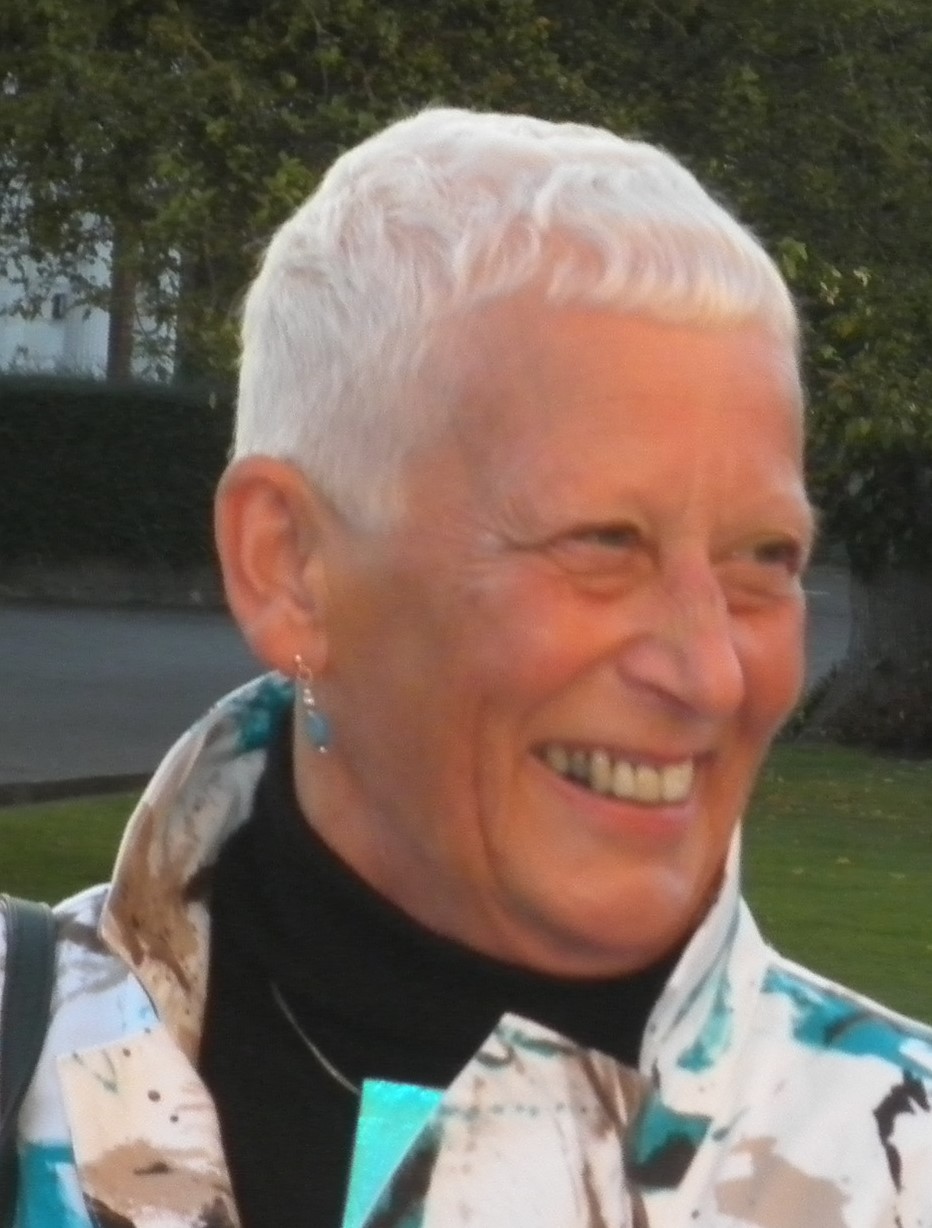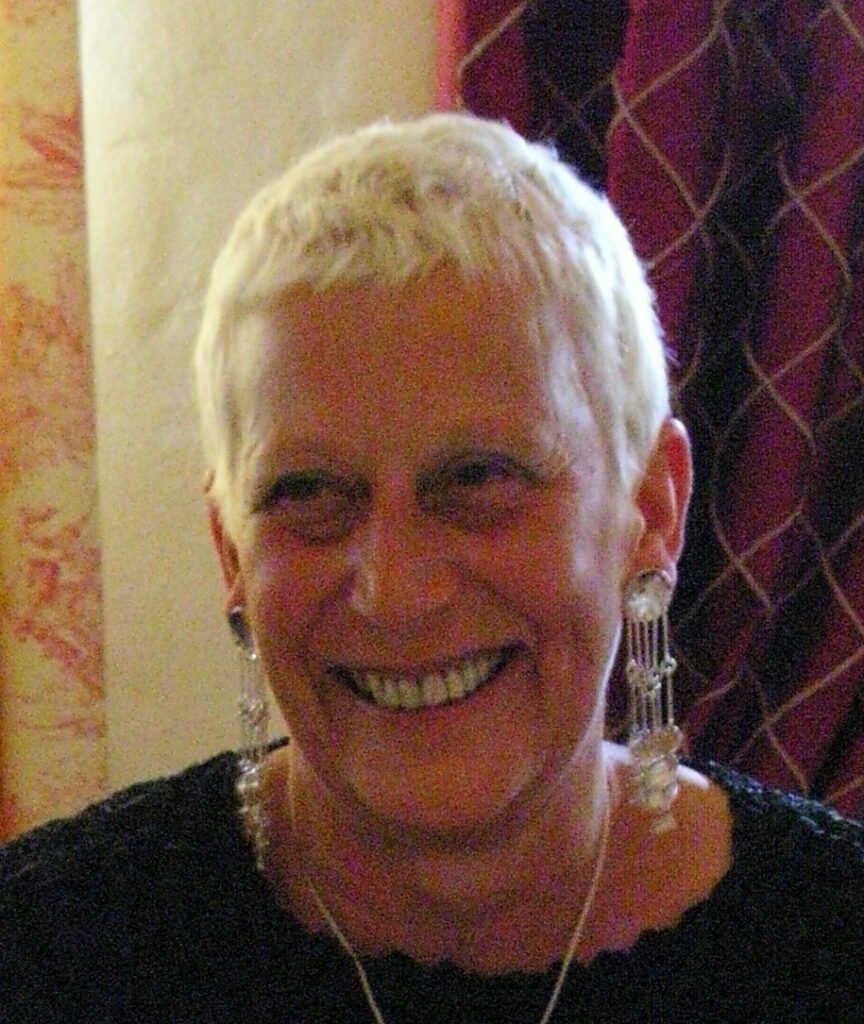ACTO patron Anne Stokes and champion of online therapy is challenging our profession to think differently
Over the years many of you will have heard of, listened to presentations at conferences, read books or articles by or indeed spoken to Anne Stokes. Anne is a passionate advocate of online counselling and psychotherapy and a practitioner of online work since the late 1990’s. Earlier this year, we were delighted when Anne accepted our invitation to become a patron of ACTO in recognition of her service to the profession.
Last month, you may have read about our plans to refresh our organisation for the challenges which lay ahead, as the online community grows to accommodate the environment, we now work in.
In July, I therefore invited Anne to give a presentation to the ACTO Board. Anne’s experience in the field of online psychotherapy and counselling is immense. Her book Online Supervision (Psychotherapy 2.0) is undoubtedly a must-read text for all online practitioners. I wanted to give Anne the opportunity of challenging our organisation to embrace the new opportunities and help us to overcome the hurdles presented following the global pandemic. Since March, we have experienced significant membership growth in ACTO and of course thousands of psychotherapists and counsellors have migrated from face-to-face sessions to meeting with clients online.
I thought I would share one of the key points that Anne made: –
“The COVID-19 pandemic feels like it is a real watershed moment for the online counselling and therapy profession, turning our world upside down.
“In recent years, the number of therapists practising online has increased significantly. However, since March these numbers have grown exponentially. Many practitioners are now working online – because they have to. We need to respond to that, bringing people into our online community.
“For example, how are we going to ensure a consistently high quality of service to clients as those offering counselling and therapy online increases substantially? We must reach out to training providers and encourage people who may do things differently, whilst maintaining our ethical standards and values.”
Many of us have been working online for a period of time. Sometimes – given our enthusiasm and passion for online working – it can be difficult to understand the steep learning curve and issues facing other therapists who are new to this form of working. Our response must be inclusive and positive: supporting practitioners and those in the field of training, with the key objective of raising standards and ensuring the quality of our work.
Anne’s contribution is timely. We have recently set ourselves new goals and aspirations to raise standards and encourage discussion and debate, as we welcome more members into our online community. Anne is encouraging us to do more – and to rethink how we do it.
Inspiring words. And words which we will translate into action.
Thank you, Anne.
Adrian M Rhodes
Chair, ACTO



